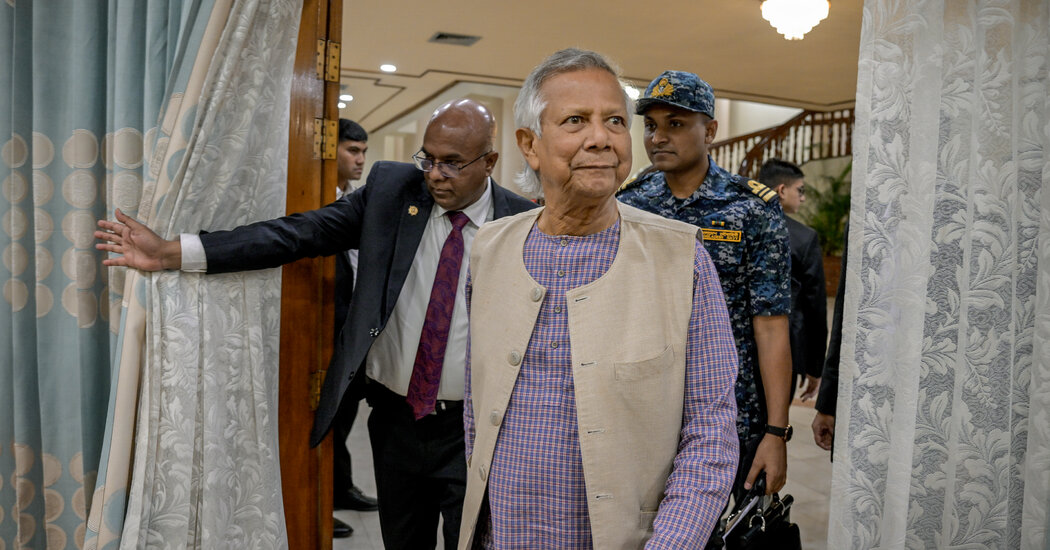
When an idealistic movement led by students toppled the increasingly autocratic government of Sheikh Hasina last August, millions of Bangladeshis celebrated the imminent revival of democracy.
Almost nine months on, an appointed interim government is frustrating everyone who wanted to vote in new leaders right away. Now its celebrated leader, the Nobel Peace Prize laureate Muhammad Yunus, is threatening to quit if he is not allowed to get on with his job and prepare the country for elections at a slower pace.
Mr. Yunus, an internationally respected technocrat, was seen as Bangladesh’s best chance to pull things together until fair elections could be held. He was appointed to lead an interim government while there was still blood in the streets.
But his aides say he feels thwarted by an emerging alliance between the country’s largest remaining political party and the army, which have criticized his policies and say he is being too slow to plan elections.
On Thursday, Mr. Yunus threatened to resign if he did not get political and military backing to carry on unfettered.
Mr. Yunus went as far as drafting a speech announcing his resignation, according to a senior official in his government. Other advisers managed to persuade him that his resignation would further destabilize Bangladesh. The official said by phone that his boss was especially unhappy with statements recently made by the army chief calling for elections this year, and felt worn down by criticism from political opponents.
